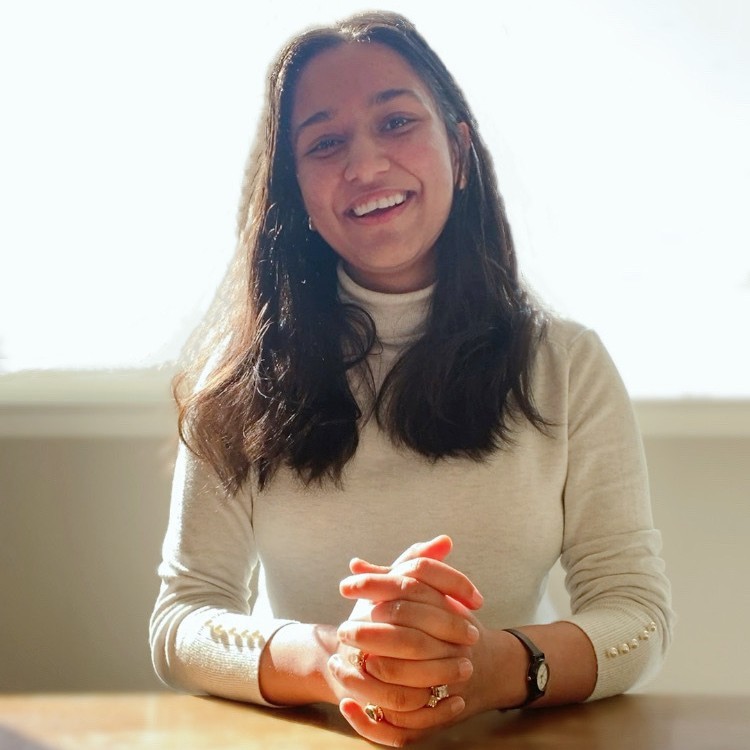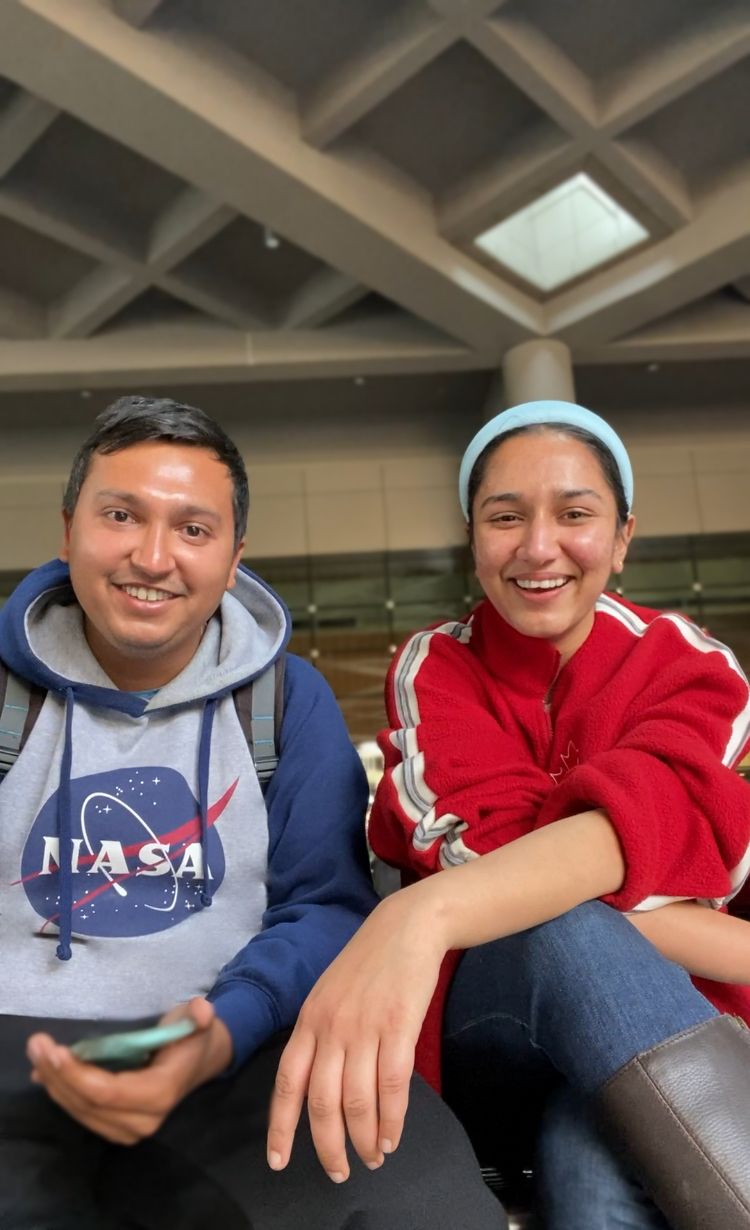(April 2, 2023) In October 2021, a Lancet study found a 35 percent increase in mental health disorders in India alone. That means one in every seven Indians, amounting to a whopping total of 19.73 crore people. The gig economy and its hustle culture, the advent of AI, the growing pressure on teenagers to get into top-notch foreign universities, and the glamorisation of toxic work environments have had telling effects on mental health. Social media, with its curated, filtered glimpses of people’s lives has only contributed to overall stress, leading to feelings of inadequacy and loneliness. Unless, of course, you find Ananya Jain on LinkedIn. The intrepid tech founder works with GenZ’s mental health, creating a safe and empathetic space for them to connect and cope.
“I help strangers on the internet,” she writes, in her LinkedIn bio. That’s exactly what she does – she helps people. Not in the way that a mental health professional would – while the stigma around seeking help is reducing, empathetic friends are hard to find. That’s the gap Ananya fills with FullCircle. Younger generations want to open up and talk about mental health, but the people who understand are rare.
“It started selfishly,” Ananya says, during an interview for Global Indian. “I was trying to figure out what was wrong with me.” At 23, Ananya’s aura of wisdom is a hard-won attribute. Her early life was filled with challenges and she overcame them, mostly on her own. In the end, she knew one thing: she didn’t want anybody, not even strangers, to suffer in silence and solitude. It meant sacrificing, at least for the moment, the financial security that every immigrant seeks, in order to be a tech founder and start up an organisation for mental health in a foreign country.

Early turning points
Ananya grew up in Chandigarh, “always looking for ways to get out of the house because things weren’t great at home.” Her sanctuary was the chemistry lab at her high school – she didn’t have any particular interest in science but it was the only place she had. One day, she noticed cockroaches running around in the laboratory. She decided to run some experiments on them, to distract herself from the boredom, if nothing else. “I made a lot of mistakes but I kept at it. At the end of that year, I was 13 then, I had made a biofertiliser,” Ananya recalls. She sent her findings off to the Dr. APJ Abdul Kalam IGNITE competition.
When the President’s office called Ananya’s mother to say the “cockroach experiment” had won, the family thought it was a prank. The office persisted and finally, Ananya was on her way to meet Dr. APJ Abdul Kalam, who was the President of India then. That was a turning point in the teenager’s life. “He cracked a ton of jokes about my obsession with cockroaches,” she laughs. “And I realised that if I was ever going to make something of myself, I had better study science.”
Georgia on her mind
A few years later, she ended up filing a hurried application to Georgia Tech, starting 30 minutes before the deadline and hitting the send button with 30 seconds to spare. She was accepted- with a scholarship. She arrived in Atlanta, in her own words, as a “really dumb, broke, naive child.” She was a good student, though, and was put straight away into the Grand Challenges programme, which was reserved for the best and brightest. “Everyone around me had already done two years of college,” she recalls.
In those early days, life looked great on paper but in truth, Ananya Jain was struggling to cope. She was stressed, had no family in the US, and worked five jobs throughout her time in college to pay her way through. “I would sit in a Math lecture, pulling my hair out because I was so stressed.” After class, she would rush to work until past midnight. She was also travelling abroad for research.
The breaking point
By the second year of engineering college, Ananya Jain had lost all her hair. “I was completely bald,” she says, “I had started shedding hair in May 2018 and by the end of that month, my hair had fallen out.” For a young woman who had always had long hair, this was shocking. She went to several doctors, but nobody could figure out what was wrong – there was nothing to explain such radical hair loss. And Ananya was keeping it all secret from her family back in India. “I would call my mother every couple of weeks and wear a hoodie. One day, she had had enough and made me remove it,” she said.
That day, Ananya Jain landed at a therapist’s office, where she was presented with a big bill to be paid by the end of the week. “I had a spreadsheet of expenses. If I had to pay the therapist, it meant I couldn’t eat that week. So I didn’t eat that week. Ironically, I was more stressed going out of therapy than coming into it,” she remarks.
This was the breaking point. Ananya Jain was fed up – she took a photo of herself, completely bald, and posted it on the internet. And she posted her phone number, telling people that if they were stressed out, they could call her (yes, it’s a risky thing to do). Twenty-four hours later, 1,00,000 people around the world had seen it. “So suddenly, all I was doing was taking calls from people around the world.”
All the lonely people
Why were they calling her, though? This is the age of technology, where everything, even peace of mind, can be coded. Meditation apps, therapists, medicines, everything was a click away. So what was happening? The simple answer: Loneliness. What was the point, she thought, of doing engineering and research when it was such a struggle and there were so many people seeking help? “I cut my education short to work on mental health instead.” And that’s how things came full circle, so to speak.
FullCircle has two aspects – one, says the young tech founder, is “remaking The Oprah Winfrey Show (it’s a figure of speech) for GenZ.” Ananya interviews celebrities to talk about what they go through and how they cope. The other aspect is to bring curated groups of ten people together to form small but tight-knit communities. “We facilitate them talking to each other,” she explains. “For someone like me, who had just lost her hair, instead of going to Reddit and talking to 50 people trying to find out what was wrong with me, I would go on FullCircle and ask for help.” When she was struggling, Ananya recalls, she met a lawyer in Boston. He had lost his hair too, during law school. “If I had met him two years earlier, I would have had an answer.”
Leading by example
Ananya’s own life is meticulously planned out. Managing stress is a lifelong affair and everything matters, from diet, exercise, and rest, to intangible aspects like good friends and family to provide emotional support and also hold one accountable. “Everything I can control, I put on an Excel sheet,” she explains. “I try to reduce the number of decisions I need to make daily, so my diet plan, my clothes, my social interactions – everything is planned out. I have learned to listen to what my body is telling me.”
Not another therapy app
The tech founder doesn’t comment on the pros and cons of therapy – of course, it is necessary in some cases and helpful to many. Still, people require more – they need emotional and tangible support. “We are here to offer perspective to people,” Ananya explains. The FullCircle journey does not end with creating micro-communities alone. “The goal is to support them every step of the way, to make people realise they’re not as alone as they thought.” The other aspects include coaching, therapy, and growth. Mental well-being is never about just one thing- as the saying goes, ‘it takes a whole village’. And that’s what this young entrepreneur has made it her purpose to give, to tell people that no matter what, there’s hope out there.
- Follow Ananya Jain on LinkedIn





